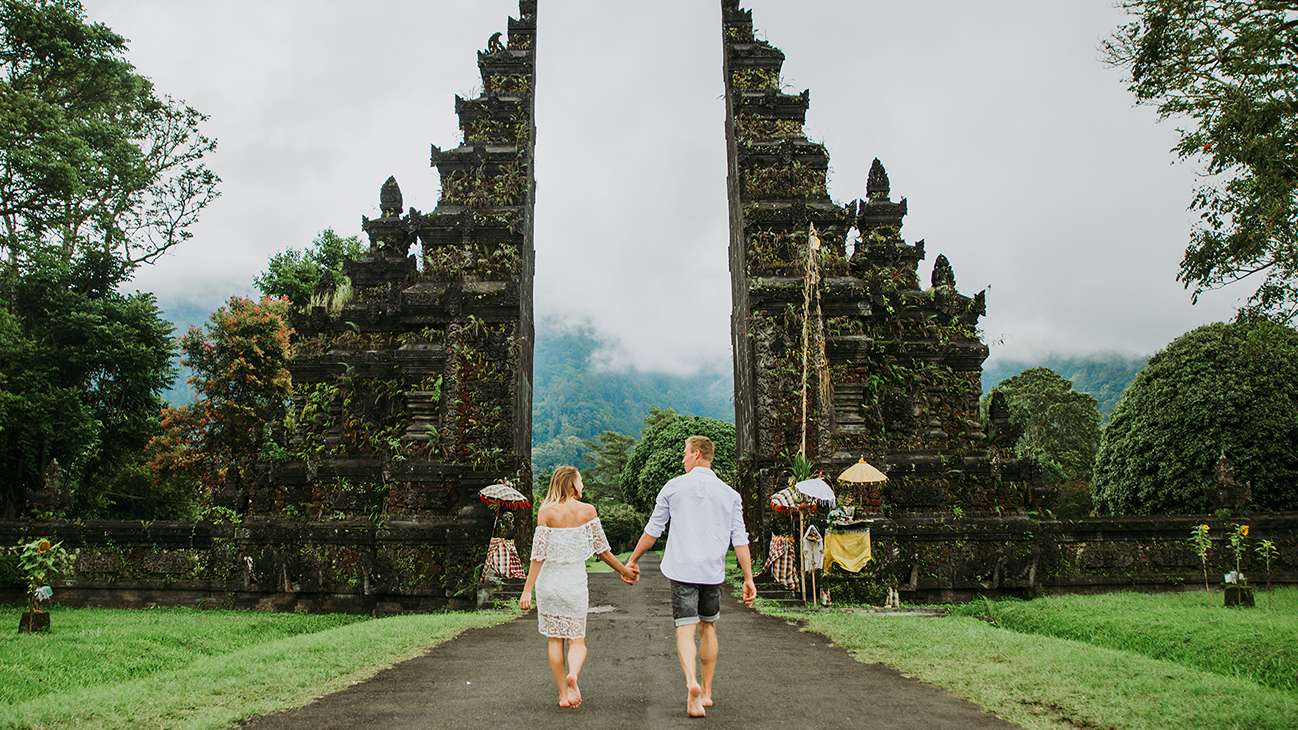Travelling anywhere comes with its inherent risks. Despite being a tropical paradise, Bali is no exception. Like anywhere else in the world, travellers need to be aware of the existing tourist scams in Bali that can turn your dream vacation into a nightmare.
The good news is that these tricks and traps are avoidable if you’re aware of what to look out for. You’ll have far better chances of protecting yourself and saving your hard-earned money. Here’s a comprehensive guide of the most common Bali scams and how you can avoid them to ensure a smooth-sailing holiday.
Airport porters scam
From the moment you step off the plane, be wary of people trying to charge you large amounts for their services. Airport porters are the first form of tourist fraud in Bali you’re going to face. They strategically position themselves from baggage claim, all the way to the exit, offering to carry your luggage for you.
While you may consider their useful help, they may end up charging you an exorbitant amount once you reach your taxi. Your best defense is to negotiate a price upfront if you really need their services. Otherwise, politely decline and just bring your own trolley.
Overpriced transport
Transport fraud is one of the most prevalent travel scams in Indonesia. Many first-time visitors fall victim to driver scams simply because they aren’t aware of standard local rates.
In Bali, taxi journeys covering close distances should cost no more than Rp.20,000 to Rp.50,000, with airport taxis costing 2-3 times more due to their premium location.
Avoid taxi scams in Bali by using trusted ride-hailing services like Gojek or Grab. These apps offer fixed prices based on distance and area, eliminating the chances of being overcharged. If you’re happy with the driver’s service, you can always tip extra.
“Free” tours
When you arrive at major tourist destinations in Bali, you’ll encounter many local guides offering you a free tour. This is one of the most deceptive visitor scams in Bali because nothing about their services is truly free.
You may be enjoying a guided tour, but additional prices will pop up throughout the tour, such as mandatory “donation” stops at temples or shops where the guides earn commission. There may also be a shockingly large fee at the end of the experience.
To avoid being scammed, book tours through reputable companies in advance, and don’t entertain guides offering services on the spot.
Fake tour operators
Unofficial tour operators often promote alluring tours online with attractive prices that seem too good to be true. Common issues with these fraudulent services include tours that don’t match their advertised descriptions, hidden costs that add more to the final price, and last-minute cancellations that may leave you stranded.
Before booking or putting down a deposit for any tour, check the tour company’s reviews and official business registrations. The few extra dollars you might save aren’t worth the risk of losing your money (and safety) entirely.
Currency exchange scams
Money exchange scams are among the most common forms of fraud in Bali. Money changers around tourist hotspots will advertise competitive rates on signage boards outside. However, these numbers are merely to lure you in.
Inside, there may be hidden fees that aren’t disclosed until after the transaction, sleight-of-hand techniques where bills are miscounted, and larger bills switched out for smaller ones.
To ensure that your finances are safe and you receive a fair rate, avoid money changers at the airport. Instead, exchange currency only at reputable banks where you can compare rates beforehand. Better yet, most establishments in Bali now accept cashless payments, so paying by credit card is your safest and most convenient option.
Accommodation scams and photo fraud
Many villas are cropping out around Bali, but not all of them are to be trusted. Villa rental scams have become increasingly common.
Some business owners will use photos of other, more lucrative properties to make their accommodations look far nicer than it is. You may be very disappointed when you arrive. In extreme cases, the accommodation wouldn’t even exist altogether.
Protect yourself from Bali accommodation scams by booking only reputable chain hotels or thoroughly reading recent reviews before committing to any rental. Booking through established travel sites like Trip.com, Agoda, or Booking.com provides an additional layer of protection if something goes wrong.
Rental deposit scams and collateral traps
One of the great things about Bali is that it’s easy to rent almost anything – scooters, cars, surfboards, and even sunbeds on the beach. However, rental fraud is rampant among less honest operators.
Fake business owners often advertise incredibly low rental prices to attract customers and request a deposit up front. However, they disappear once you’ve paid, and you’re left without your money and the rental.
Even more concerning is the practice of demanding collateral, such as your passport or any other form of ID. Never leave these documents with rental operators, as you could potentially find yourself unable to leave the country if anything goes wrong.
Always inspect the condition of any rental and check any reviews before putting down a deposit. Take photos to document existing damage, and only deal with established rental companies that have physical shop locations.
Beach and market vendors overcharging
The more popular beaches in Bali are teeming with vendors selling everything from snacks and drinks to shirts and shorts. Some may even offer you services like hair braiding and temporary tattoos. While many are legitimate local businesses, overcharging tourists is standard practice.
Additionally, the vendors at traditional markets, employ similar tactics – especially those selling souvenirs. They quote prices three to five times higher than what locals would pay.
Vendors at both these locations rely on persistence, following you and repeatedly dropping their prices to wear down your resistance. The key to avoid being scammed in Bali is to politely but firmly turn them down. A simple “Tidak, terima kasih,” (no thank you) repeated consistently usually works.
If you are interested in any of their products, negotiate down to at least 50% to 60% of the price they offer.
Counterfeit products and fake goods
While walking through markets and shopping areas, you’ll see many counterfeit products masquerading as designer brands. Fake goods from sunglasses to clothing and even electronics are prevalent in Bali’s tourist areas.
Although these products are clearly not genuine, some vendors will push it to the limit and charge near-authentic prices for obvious fakes. If you’re looking for genuine products, stick to official retailers and malls. If you’re okay with replicas, negotiate accordingly and never pay more than a small fraction of what the authentic item would cost.
Experience authentic Bali the right way
Now that you know how to avoid common tourist traps and navigate Bali safely, you can focus on experiencing the island’s authentic culture, cuisine, and hospitality.
While you’re being selective about where you spend your money, you can treat yourself to something worthwhile, like a fine dining Indonesian meal at Merah Putih restaurant. Located in Petitenget, this award-winning restaurant offers authentic Indonesian cuisine in a luxurious setting. With upfront pricing and no hidden charges, what you see is exactly what you get.
Book a table with exclusive gift vouchers today.
FAQ
Beyond the specific scams mentioned above, be wary of anyone approaching you with requests for money. Keep your valuables secure, be mindful of your surroundings, and never leave your drinks unattended. If something feels off, remove yourself from the situation immediately.
Based on frequency, the top five tourist traps in Bali are transport overcharging, currency exchange scams, fake or “free” tour operators, accommodation fraud, and rental deposit scams.
The red zone in Bali typically refers to areas where tourist scams are more concentrated. These include certain parts of Kuta, Legian, and Seminyak where tourist density is the highest. However, it doesn’t mean these areas are dangerous; just that you should take extra precaution when visiting these locations.



